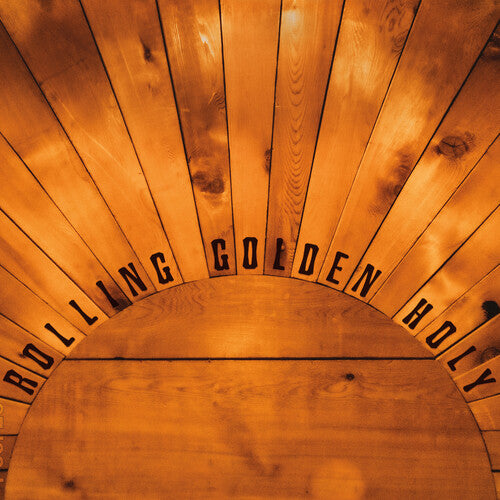37D03D
Bonny Light Horseman - Rolling Golden Holy
Bonny Light Horseman - Rolling Golden Holy
Usually ships within 1 to 2 weeks.
Couldn't load pickup availability
SKU:TSVD37D031.1
Share
Bonny Light Horseman's self-titled debut was a folk masterclass, reimagining centuries-old standards with effortless grace and wonder. Those Grammy-nominated, list- topping recordings not only suggested renewed possibilities for aging songbooks but also marked the arrival of a trio fully capable of reorienting the wider folk landscape. Still, if it felt at all like the work of some short-lived supergroup or a one-off diversion (it never was), Rolling Golden Holy rebuffs the notion with preternatural beauty and charm, and imagination. These songs, all originals, follow the paths of the traditional tunes the band cherishes to new frontiers, the sounds and situations of history given the gravity and shape of now. This is a band working at the edge of modern folk.After the release of their debut, Anaïs Mitchell, Josh Kaufman, and Eric D. Johnson began discussing their next steps, loosely planning on writing and recording stints. Those sessions were delayed for all the unpredictable but now- familiar reasons until the Spring of 2021, when the trio reconvened with their families in tow in upstate New York. Their chemistry remained intact. Johnson's wife Annie had listened to him work with dozens of collaborators over the decades, but, listening in from one room over, she noted he'd never seemed so at ease and productive as he was with Kaufman and Mitchell in Woodstock. They were perfecting "California," a timely and incorruptible classic about moving on in search of something else, something more. These sessions were a series of "yes, and" encounters, each one encouraging the others to take an idea and run with it further to the new safety net they've built together, for one another.These songs continually suggest and embody an unspoken continuum between traditional and modern folk. Mitchell finds self-sustaining adoration in steamy backseats, nighttime visions, and seasonal storms during "Summer Dream," crisscrossing generational symbols to tie past, present, and future into a Gordian knot of devotion. Johnson reaches back to 19th-century wartime on "Someone to Weep for Me" to empathize with someone else descended from "a long line of nobodies," just trying to live long enough to feel like he's mattered to anyone at all, a notion that knows neither age nor border. Johnson and Mitchell trade lines on "Exile," their luminous response to another of humanity's eternal conundrums-how to revel in relationships that we know will one day leave us lonely. Love and loss, death and fear: the songs may be different, but the emotional sources remain.The band thrives in rendering fresh wisdom and insight from old models, whether scraps of ancient songs or the spark of entwined voices. Theirs is a space created for sharing, learning, singing, and playing as one. Rolling Golden Holy is the band's testament to partnership and trust at a moment when we crave such connections so much. They fully appreciate what they have found in one another. On Rolling Golden Holy, we get to live inside that magic, too.



